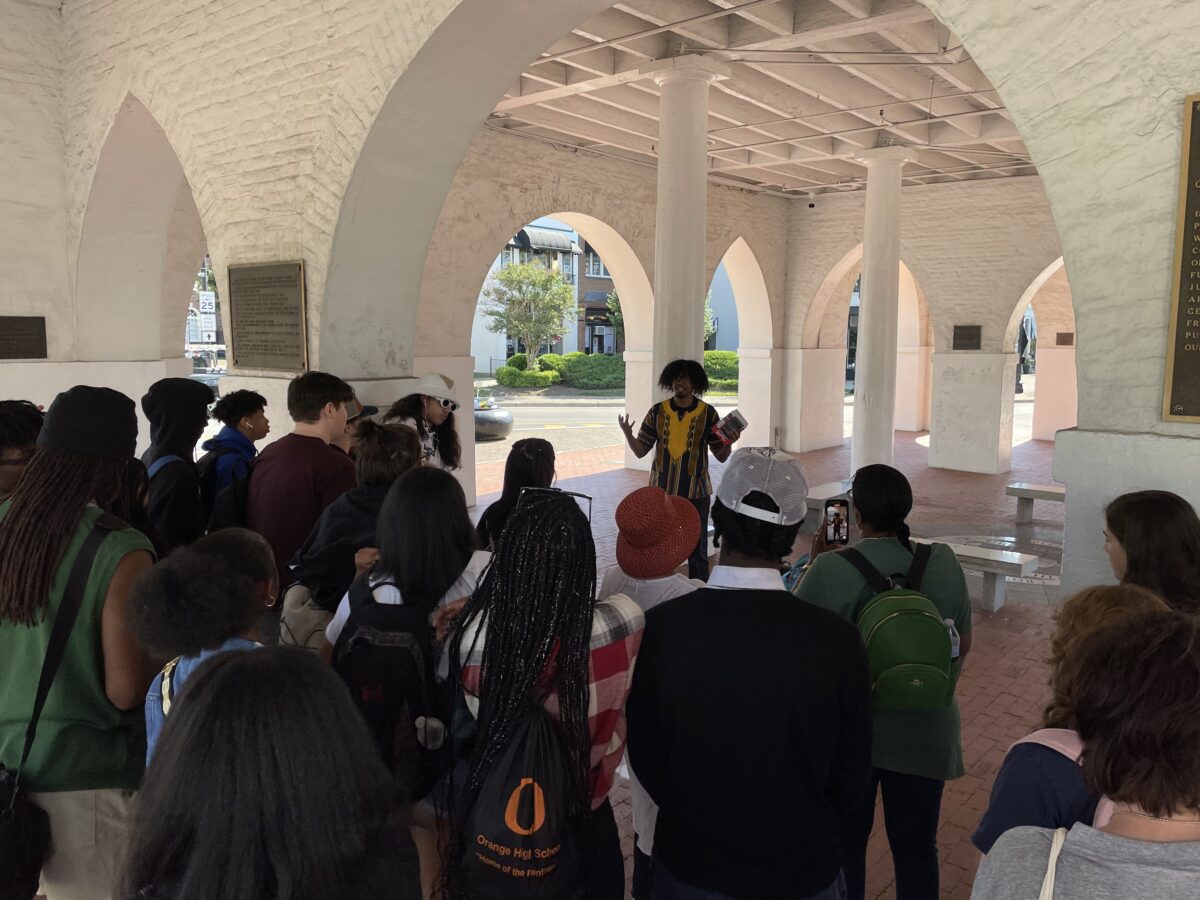
Share this story
- NC Poet Laureate Jaki Shelton-Green and Hon. Judge Beverly Scarlett joined teacher Xavier Adams and his Honors African American Studies students on a visit to explore the oral history of Fayetteville.
- 2022 Prudential NC Beginning Teacher of the Year, Xavier Adams, and his African American History class visit multiple sites in Fayetteville, NC for their oral history project.
|
|
Xavier Adams was recognized as the North Carolina Center for the Advancement of Teaching’s (NCCAT) 2022 Prudential NC Beginning Teacher of the Year. Now in Adams’ third year as an educator, he teaches honors African American studies, honors Latin American studies, and world history at Orange High School in Orange County Schools.
Throughout the semester, Adams’ honors African American studies course has focused on the importance of oral history and the critical role of maintaining intergenerational conversations. As a result of a grant received from the Burroughs Wellcome Fund, students were provided the opportunity to reflect on history through community voice. The semester-long project focused on collecting stories through interviews with community members, including various members of their family.
Recently, the class furthered their historical exploration through a visit to Fayetteville.
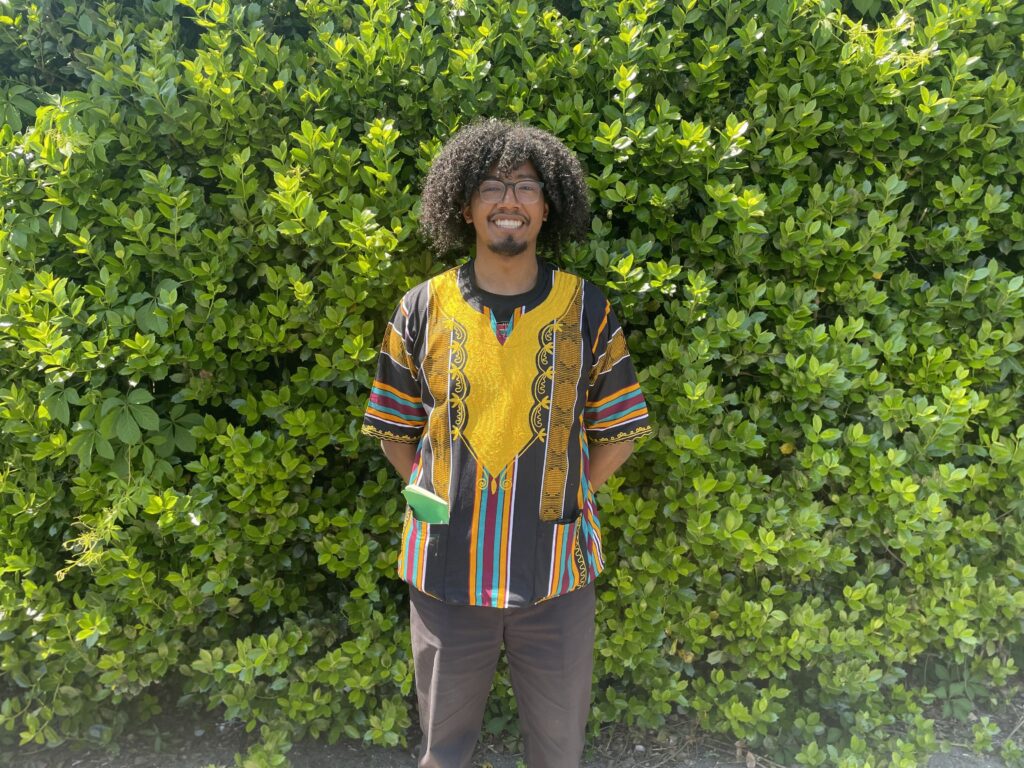
History makers supporting learning
Adams’ class was joined by local history makers on their visit. Jaki Shelton-Green, the first African American and third woman to be appointed as the North Carolina Poet Laureate, assisted with developing and leading the semester-long oral history project. In fact, Shelton-Green recommended the visit to Fayetteville to Adams.
Additionally, the Honorable Judge Beverly Scarlett, the first African American woman to become a district court judge in Orange County and Chatham County, was also present. An Orange High alumnus, Adams credits Scarlett with helping him learn the local history of Hillsborough, where he teaches.
“I think this class and its success at Orange High School speaks to what happens when we have supportive leaders and leaders that think with an equity mindset from the top down. When we have leaders that embrace these ideas, there’s so many possibilities that teachers and students are able to access for themselves.”
Xavier Adams, Orange County history teacher
Shelton-Green and Scarlett both supported the visit by facilitating discussions among the group and providing additional context to the history shared during the experience.
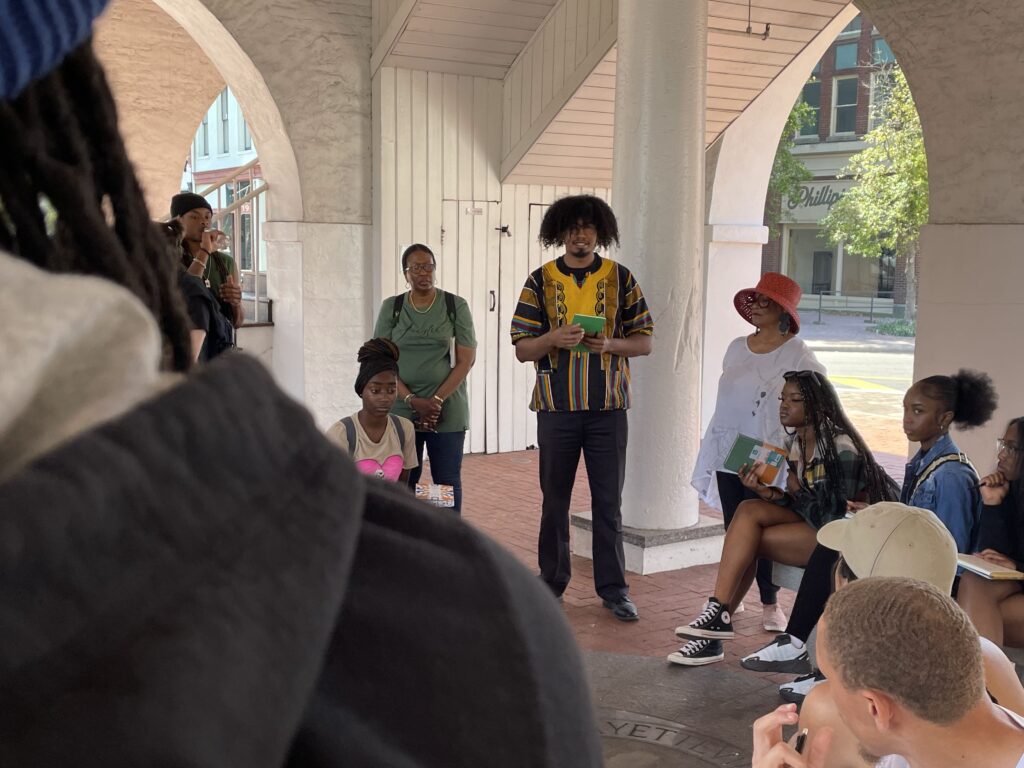
The experience was curated by Nicholle St. Leone, Fayetteville State University’s archive technician, and Shannon Ward, executive executive of Longleaf Press. The tour consisted of three primary stops: the Market House, Dr. E.E. Smith House, and Evans Metropolitan African Methodist Episcopal (AME) Zion Church. These locations each possess complex stories, especially as it pertains to Black history and change in the local community over time. St. Leone guided students throughout the day, providing detailed insight about each site, as well as other landmarks along the route.
The Market House
Located in downtown Fayetteville, the Market House provided a space of deep reflection for the class. A significant part of its history was the usage of the site as a place where enslaved Black people were sold. Years later, St. Leone retells the scene of the Market House as a gathering point during protests and marches against racial injustice.
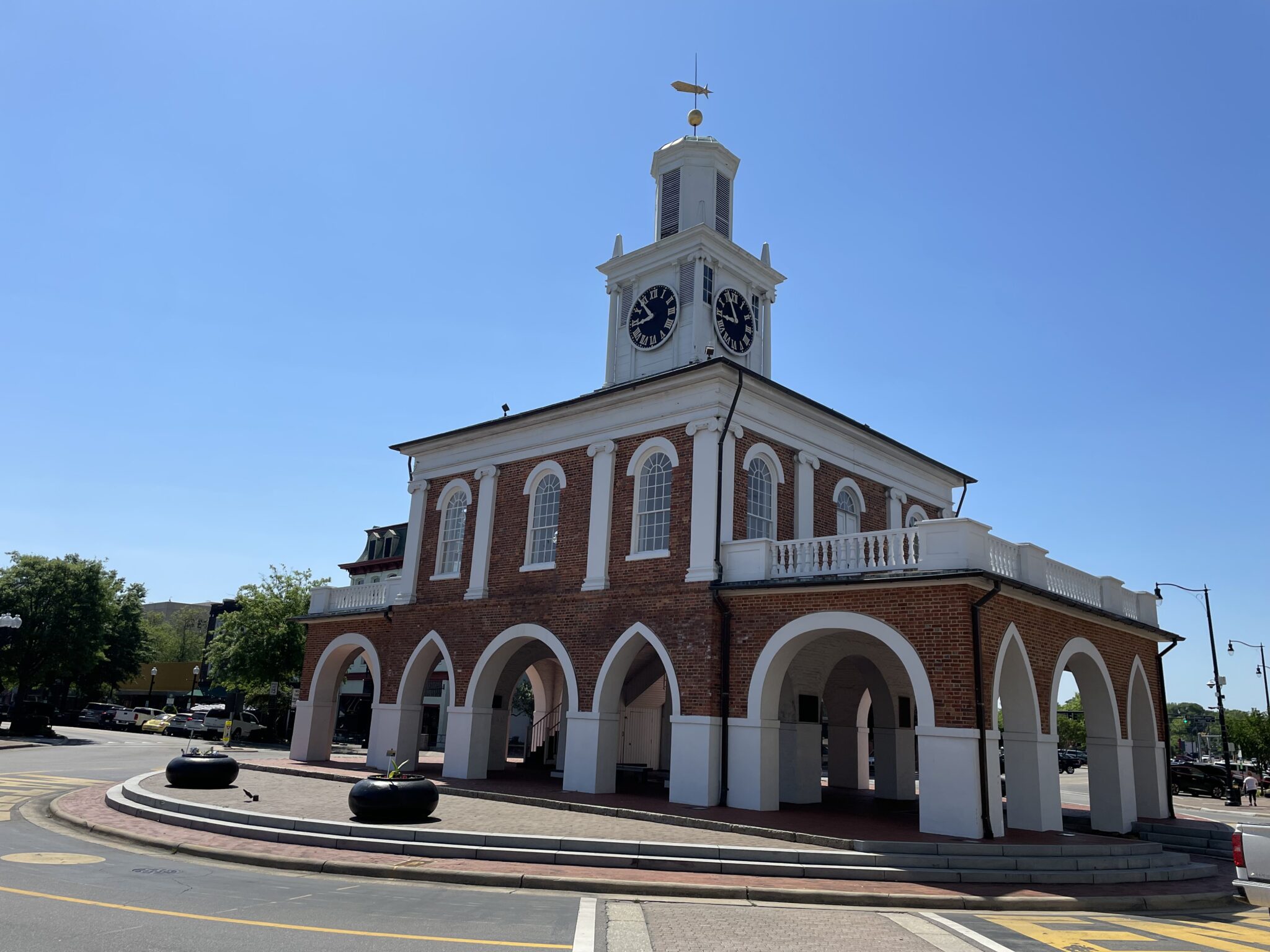
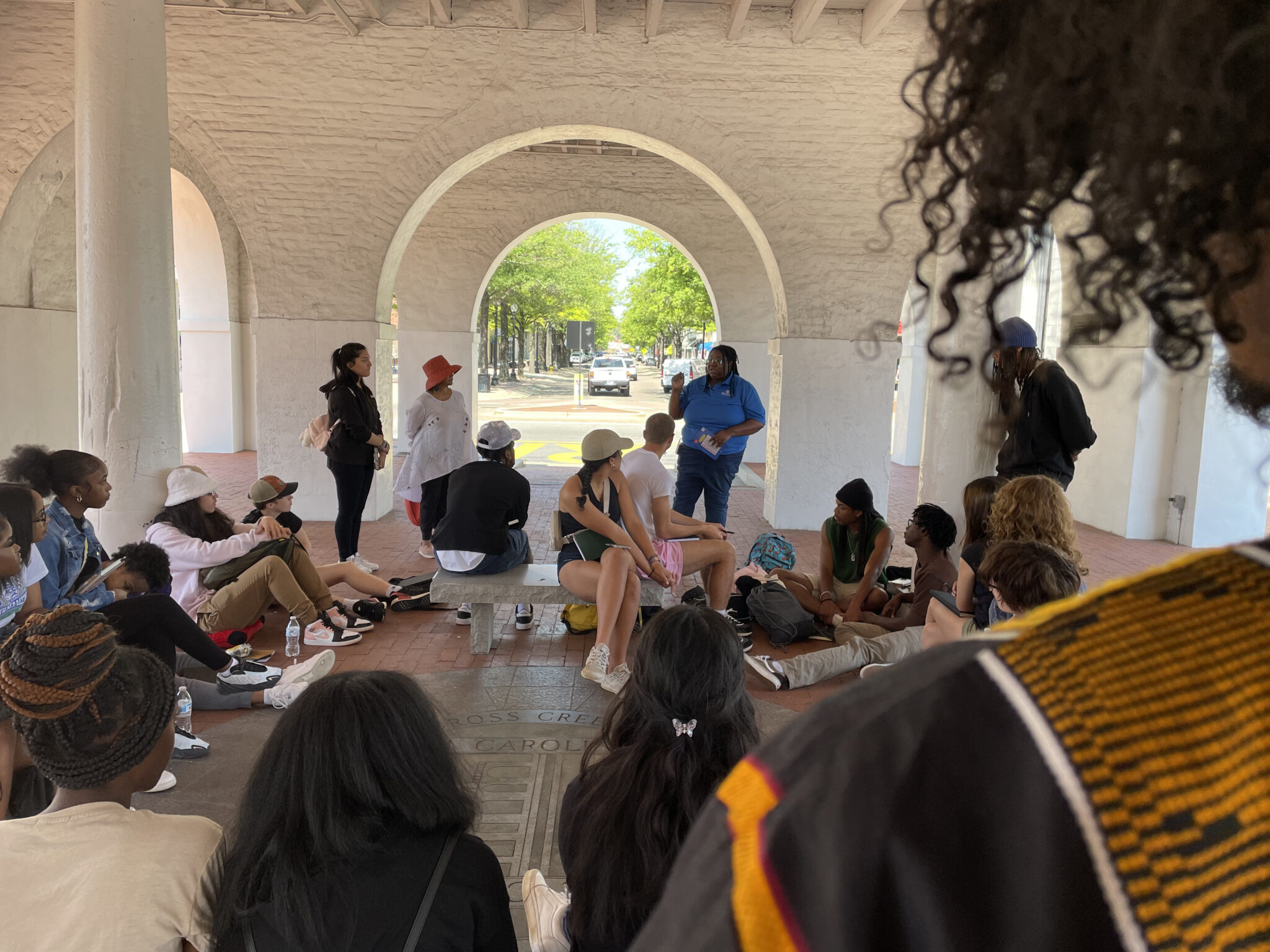
Facilitated by Adams, the class engaged in a journaling exercise while visiting the Market House, followed by a discussion anchored in the following ideas:
- The students’ five senses, which they used to ponder the experiences of people in the past versus the present.
- The “secrets,” or untold stories, of the land they occupied.
- Afrofuturism: envisioning a world absent of colonization, and considering how the preservation of histories can impact the future.
When reflecting on these discussions, Adams shared that “enslaved communities oftentimes were banned from reading and writing, because of the fact that Black education presented a threat to the institution of slavery as well as white supremacy. Today just seems to kind of run in that vein of just understanding the importance of learning history, the importance of education, for the sake of liberation, for the sake of understanding how the world works around oneself.”
Dr. E.E. Smith’s legacy
In alignment with the historical significance of education, the group traveled to the house of Dr. Ezekiel Ezra Smith. St. Leone shared the details of Dr. Smith’s background in the military, U.S. diplomacy, and education. In particular, students learned about the integral role that Dr. Smith played in the establishment and progression of North Carolina’s first State Colored Normal School, which at the time was designated for training teachers and has since been renamed Fayetteville State University.
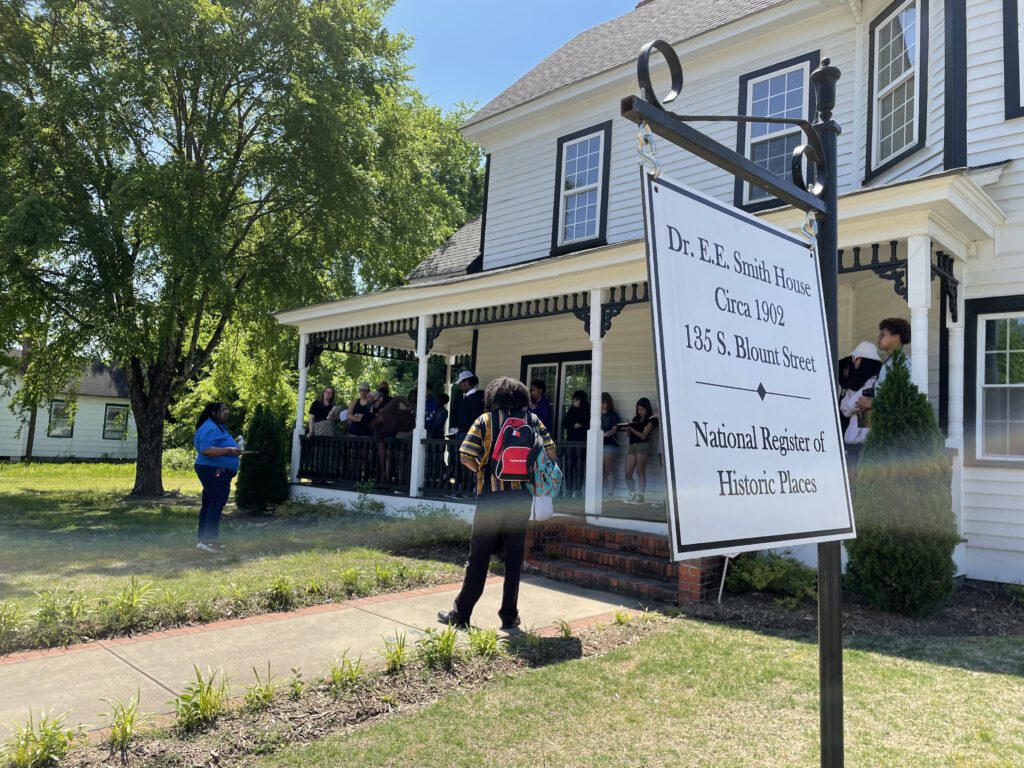
Evans Metropolitan AME Zion Church
The last stop of the tour was Evans Metropolitan AME Zion Church. Pastor Selvyn Lindo guided students through the interior of the church. He explained that the church’s namesake, Henry Evans, was a notable minister of his time and was considered to be “the father of the Methodist Church.” He also expounded on the church’s purpose, explaining its use throughout history for community and organizational gathering. Finally, Lindo invited the students to view Evans’ burial site, located on the lower level of the church grounds.
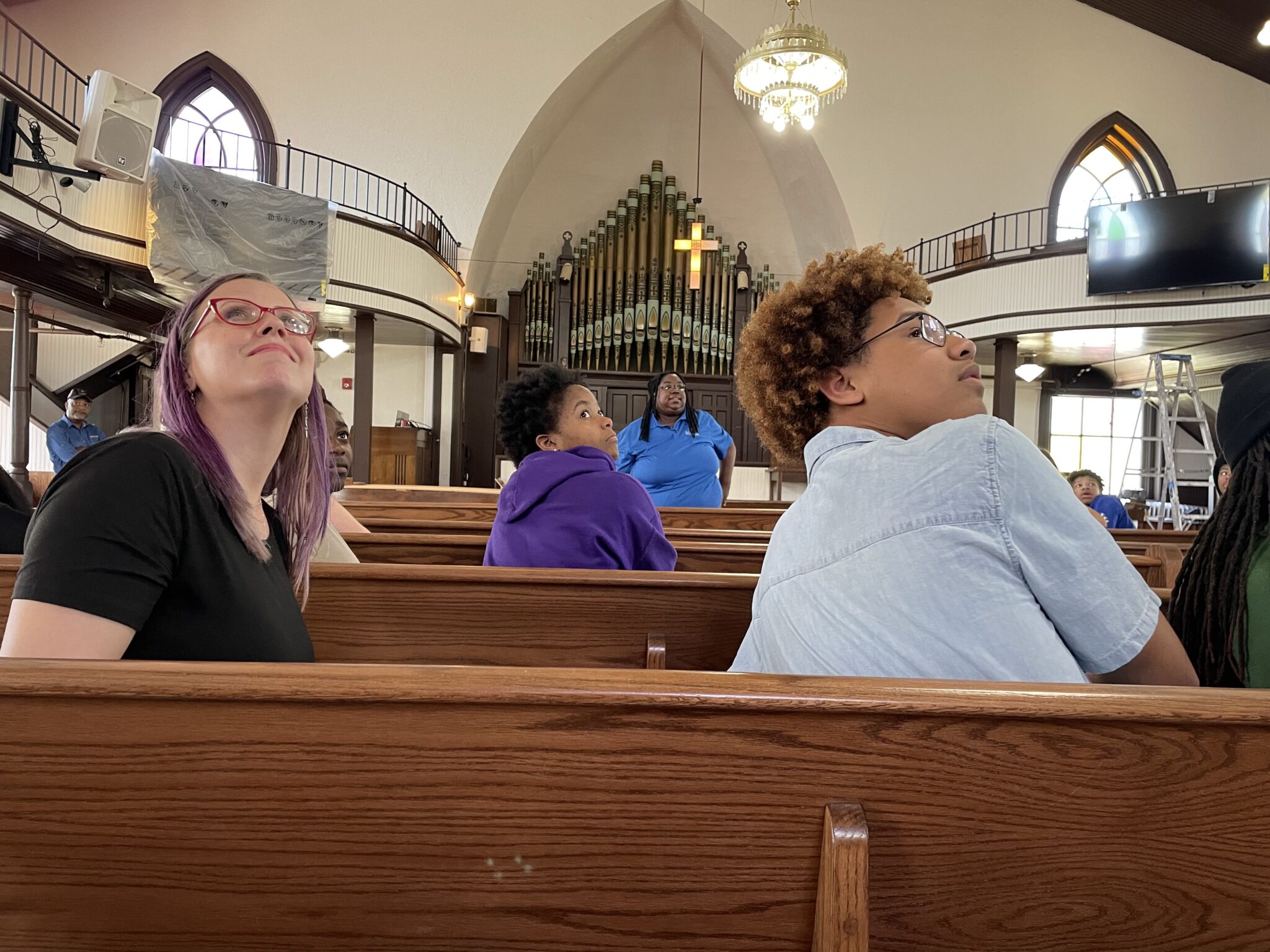
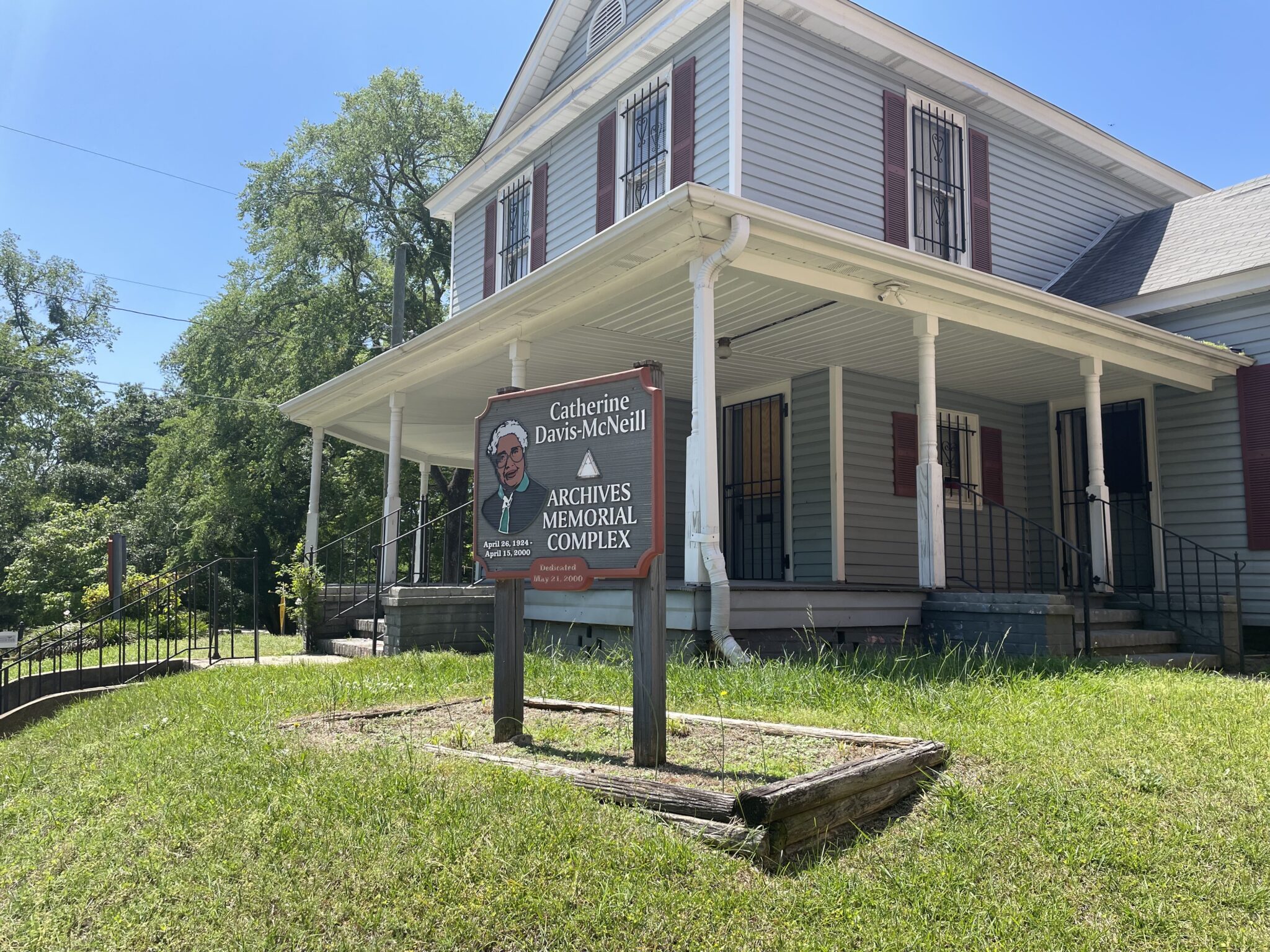
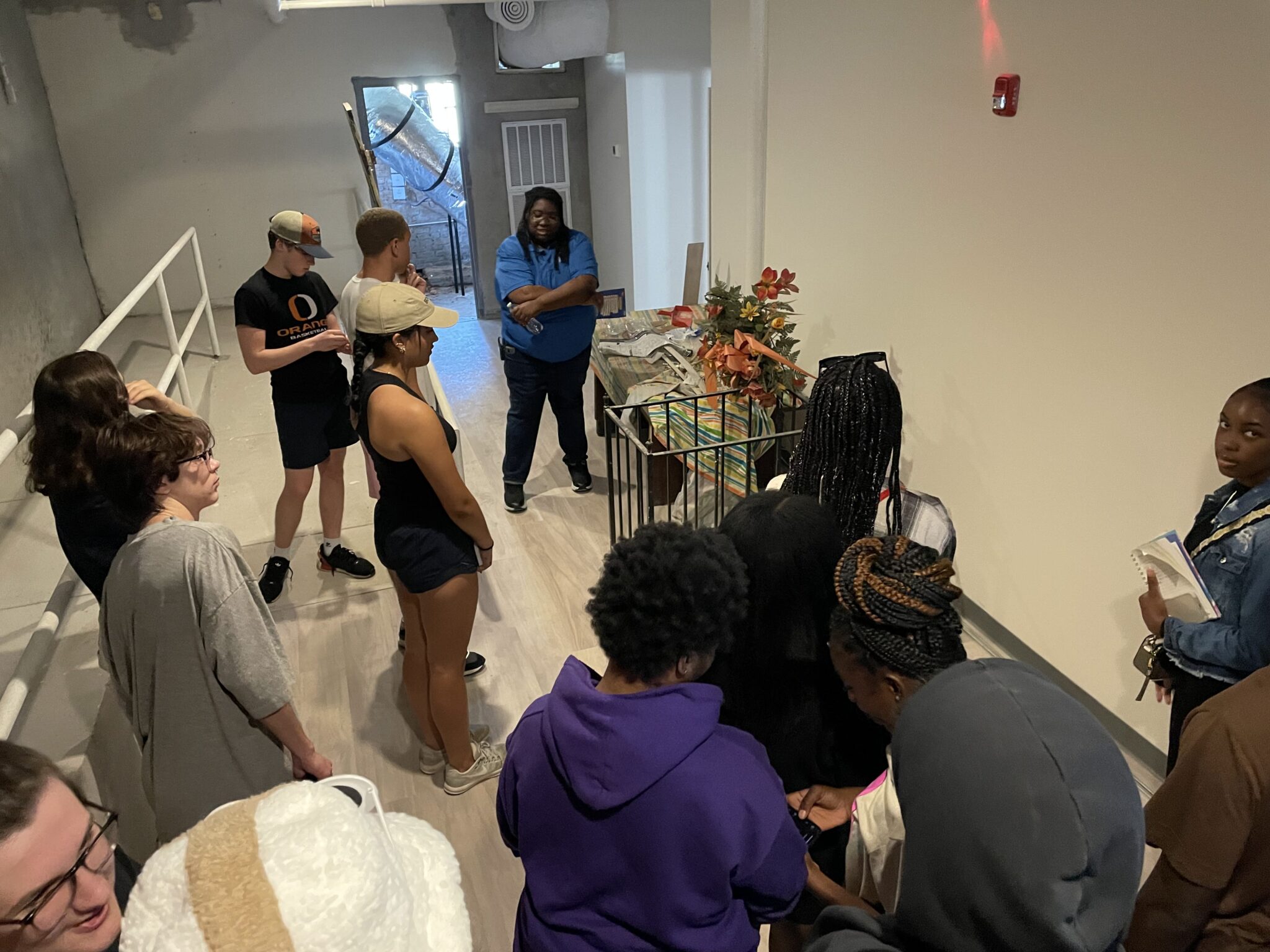
The value of history in public schools
For Adams, the field trip was just a small representation of the importance of learning the history of Black people in North Carolina and the impact that history has on all students. Adams shared that students were deeply grounded in the value of the course, particularly following the news of the Florida Department of Education’s rejection of College Board’s Advanced Placement African American Studies curriculum in the state’s public schools.
Similarly, earlier in the semester Adams’ students discussed House Bill 187. According to the bill, public schools in North Carolina would be “prohibited from promoting certain identified concepts,” in addition to being required to submit a 30-day advance notice to the N.C. Department of Public Instruction for any instruction related to those concepts. According to the bill, restricted “concepts” include any of the following ideas:
- One race or sex is inherently superior to another race or sex.
- An individual, solely by virtue of his or her race or sex, is inherently racist, sexist, or oppressive.
- An individual should be discriminated against or receive adverse treatment solely or partly because of his or her race or sex.
- An individual’s moral character is necessarily determined by his or her race or sex.
- An individual, solely by virtue of his or her race or sex, bears responsibility for actions committed in the past by other members of the same race or sex.
- Any individual, solely by virtue of his or her race or sex, should feel discomfort, guilt, anguish, or any other form of psychological distress.
- A meritocracy is inherently racist or sexist.
- The United States was created by members of a particular race or sex for the purpose of oppressing members of another race or sex.
- The United States government should be violently overthrown.
- Particular character traits, values, moral or ethical codes, privileges, or beliefs should be ascribed to a race or sex or to an individual because of the individual’s race or sex.
- The rule of law does not exist, but instead is a series of power relationships and struggles among racial or other groups.
- All Americans are not created equal and are not endowed by their Creator with certain unalienable rights, including life, liberty, and the pursuit of happiness.
- Governments should deny to any person within the government’s jurisdiction the equal protection of the law.
In Adams’ students exploration of the language and perspectives regarding the bill, they considered what the bill means for the future of their teachers and for courses like their own African American History class, given the uncertainty around limitations placed on instruction if the bill were to become law.
However, with the steady increase in students signing up for Adams’ course each year, he hopes that his classroom remains a space for students to “articulate their own voices, allowing them to form their own thoughts so that they can continue to advocate for themselves to advocate for their communities.”




